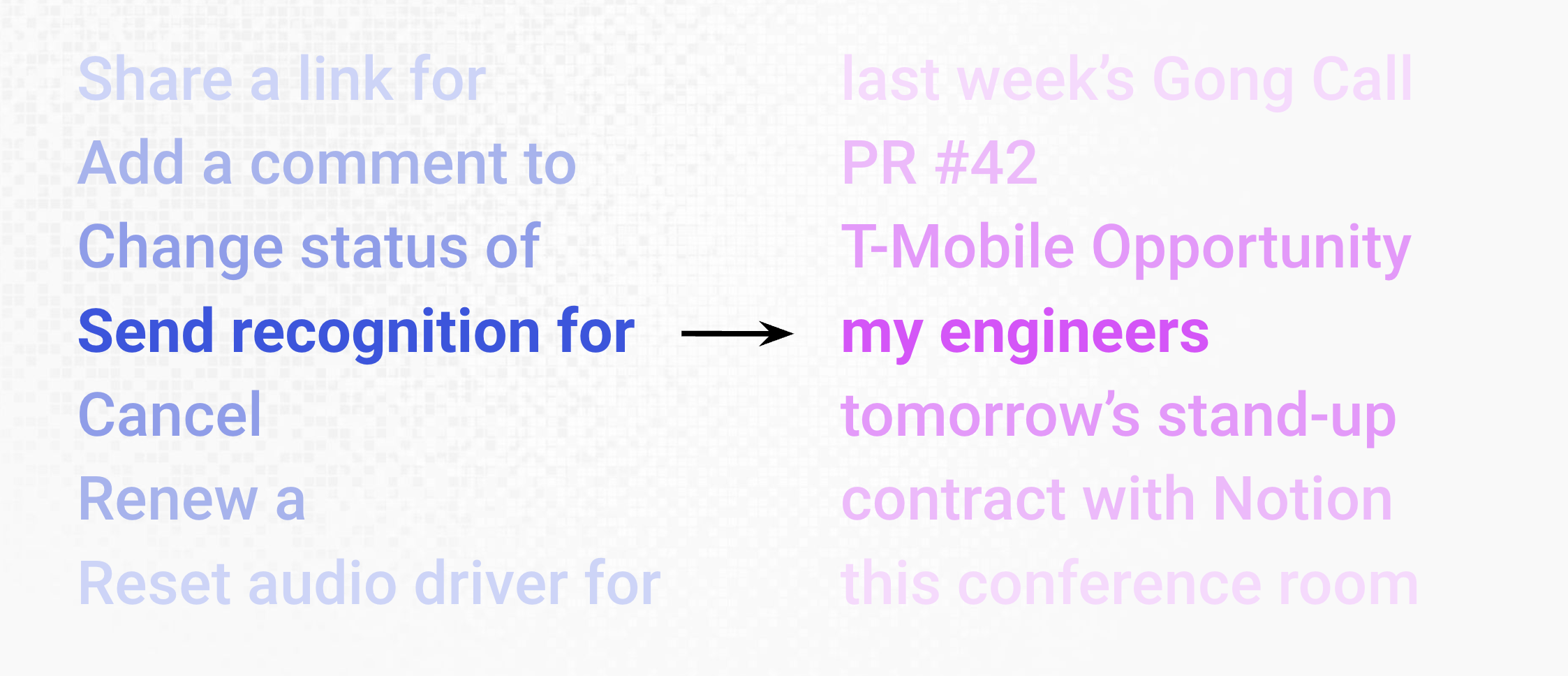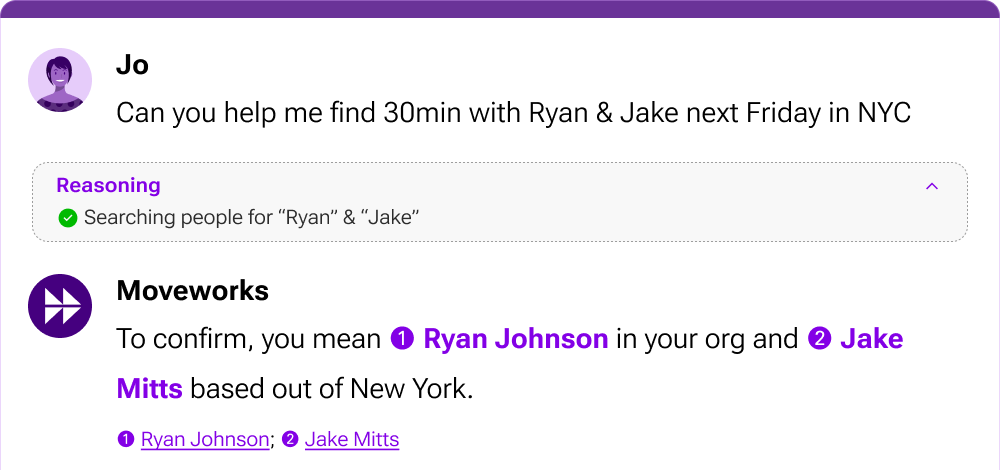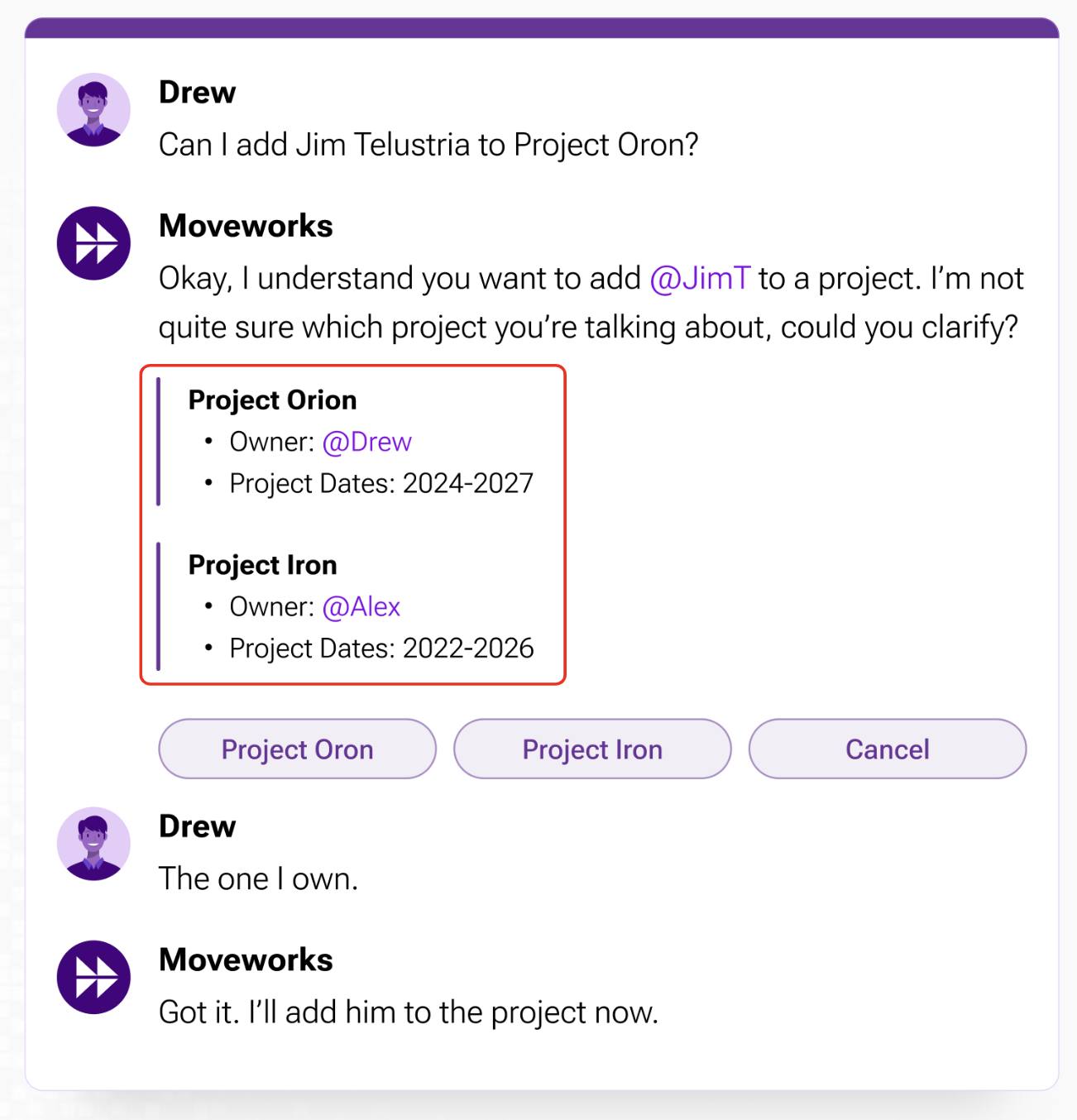Slot Resolvers
Resolving natural language into business objects
What are slot resolvers?
Slot resolvers convert natural language into data types. The way that users will reference your business objects will seldom match how they're stored in business systems.

For example...
- "Tomorrow's Standup" is a
GoogleCalendarEventwith ID =4s567d8s908f87654sa678ds - "Jamie" is a
Userwith ID =9e107d9d-372b-4ac9-b4e9-0fbccd3029ab
We purpose-built Slot Resolvers to solve this problem. Plugins built using slot resolvers will perform substantially better when deployed to production.
How do they work?
Candidate Retrieval
Then, the AI agent retrieves possible values that might satisfy the constraints of your slot. These are retrieved using the resolver strategy.

In this case, the AI agent search for
Disambiguation
Then, when the AI agent finds multiple possible matches, it presents them (with citations) so the user can pick the right one.

Stable Memory & State Management
Slot Resolvers use a symbolic working memory architecture to keep track of both
- the list of possible values possible values &
- the selected value
As a result you can be confident the AI agent won't accidentally change IDs or make up new ones when providing them to your actions.
Updated 15 days ago